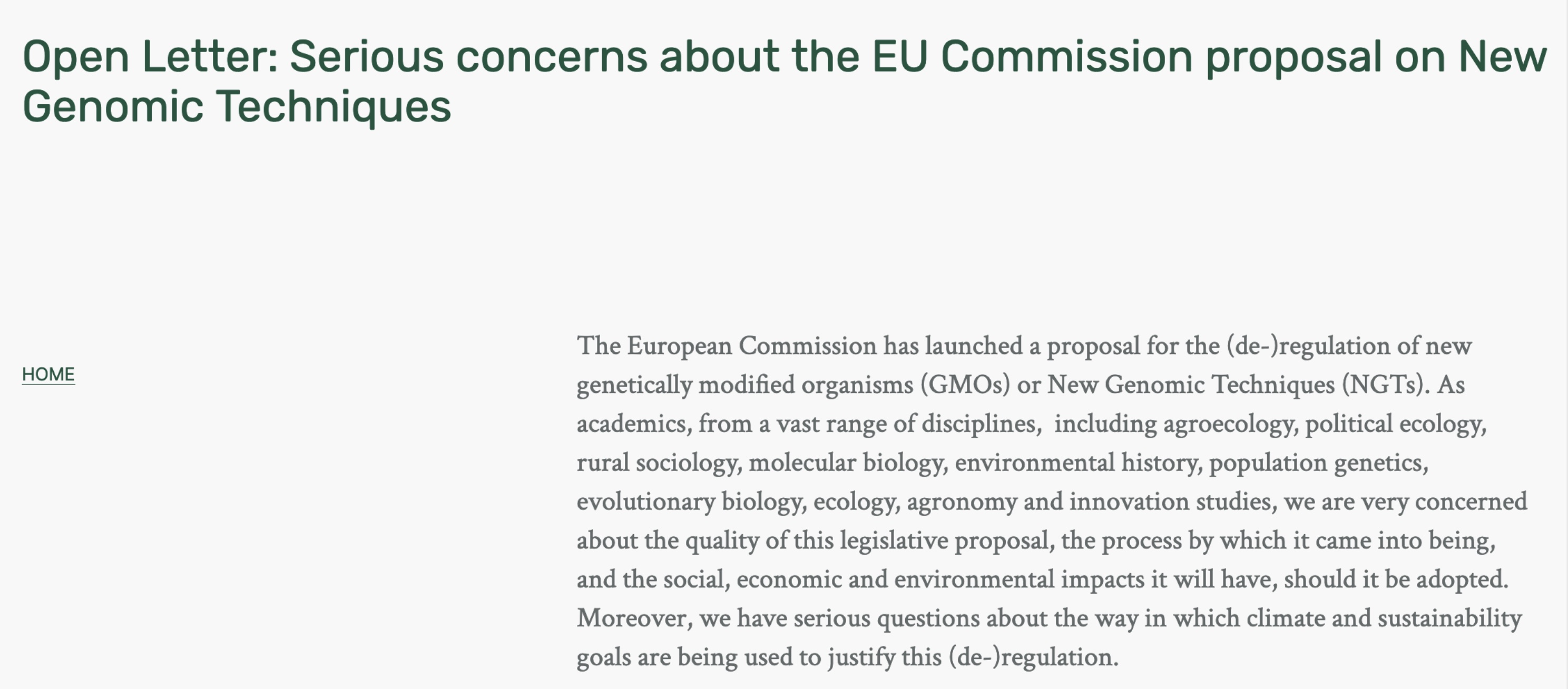
"The concept of safety is conspicuous by its absence in the proposal" – open letter
More than 70 academics and scientists have signed a letter asking for a full rejection of the European Commission's proposal to deregulate new GMOs (products of new genomic techniques or NGTs), on the grounds that it threatens an "irreversible change" to our ecosystems and food systems.
The letter says, "As academics, from a vast range of disciplines, including agroecology, political ecology, rural sociology, molecular biology, environmental history, population genetics, evolutionary biology, ecology, agronomy and innovation studies, we are very concerned about the quality of this legislative proposal, the process by which it came into being, and the social, economic and environmental impacts it will have, should it be adopted. Moreover, we have serious questions about the way in which climate and sustainability goals are being used to justify this (de-)regulation."
The letter criticises the "arbitrary" and non-scientifically-based distinction between the different categories of new GM plants – the vast majority of which are planned to be exempted from safety checks, traceability, and labelling – and the lack of risk assessments. The letter says, "The concept of safety is conspicuous by its absence in the proposal, even though it is the cornerstone of existing GMO legislation."
Regarding one of the main claims used to justify deregulation, that certain new GMOs could theoretically also occur via conventional breeding or naturally, the letter says, "Just because a plant has similar traits does not mean that the process by which these new organisms are produced would no longer matter. On the contrary, scientists have argued that process-induced unintended changes may present risks to health or the environment."
The letter concludes, "The stakes should not be underestimated. Once genetically manipulated organisms are released into our environments and food systems, they cannot simply be taken out again in the event that environmental or health problems appear. It might even become impossible to simply identify or trace the origins of environmental and health problems. This is of great concern in a society in which health and environmental problems are increasingly the result of complex, interacting and often largely invisible causes. This is obviously not of concern to the agro-chemical industry as it allows them to escape responsibility. This brings us to our last point: when seeds and genetic material fall even further into the hands of agribusiness, it will become ever more difficult for governments and farmers to guarantee robust, sustainable and fair food systems. In this sense, this is an irreversible decision. We therefore urge you to express your strong reservations and reject the Commission’s proposal."
The letter is covered in today's Politico (subscription only). Politico quotes Barbara Van Dyck, associate professor at the centre for agroecology at Britain's Coventry University and one of the initiators of the letter, as saying that the proposal is "based on flawed arguments". She added that the making of the proposal "can hardly be called a democratic process," and that trying to rush it through before the EU elections "is not the best way forward".
Van Dyck told Politico, "The current proposal follows the demands of the agro chemical lobby." She said the arguments used — such as the sustainability benefits of drought or pesticide resistant crops — are "based on unsubstantiated promises". She added that if the proposal were adopted, it would torpedo the transition towards more sustainable agriculture, rather than facilitating it.
Academics and scientists who want to add their names to the list of signatories can do so here.









